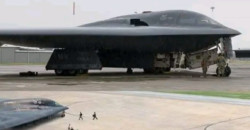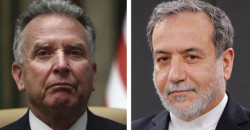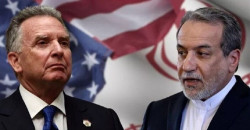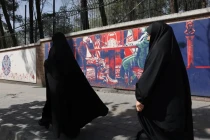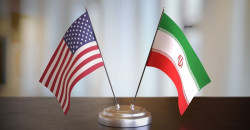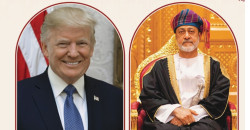EXCLUSIVE: Oman talks spark cautious optimism
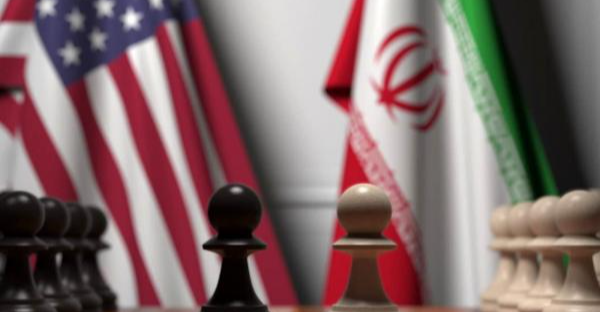
Shafaq News/ Indirect nuclear negotiations that began on Saturday between US and Iranian officials will not easily reach a diplomatic breakthrough, following years of heightened tensions, according to an Omani researcher.
The talks, hosted in the Omani capital Muscat, bring together US Special Envoy for Middle East Affairs under President Donald Trump, Steve Witkoff, and Iranian Foreign Minister Abbas Araghchi.
Trusted Mediator
Oman has long served as a discreet mediator in regional conflicts, particularly the Iranian nuclear file. The Gulf state hosted several secret rounds of negotiations that paved the way for the landmark 2015 nuclear agreement between Tehran and world powers.
“Oman is a neutral actor trusted by all parties involved in the nuclear issue,” said Habib Al-Hadi, a researcher in international relations based in Muscat.
Al-Hadi noted that while reaching an agreement will not be easy, there is a real chance to resolve outstanding disputes. “Iran is a seasoned negotiator and knows how to use time strategically. Meanwhile, Trump is motivated by economic interests, and American investment opportunities inside Iran may help bring both sides closer,” he stated to Shafaq News.
Political Obstacles
Despite signs of engagement, major obstacles remain. The two sides have not maintained diplomatic relations for decades, and the structure of the current talks remains contested.
On Friday, the White House insisted the discussions would be direct. However, Iran’s semi-official Tasnim News Agency reported that the two delegations had begun indirect talks following a preliminary meeting with Oman’s Foreign Minister Badr bin Hamad Al Busaidi.
It remains unclear whether the discussions will extend beyond Saturday.
Military Tensions
The latest talks come amid renewed threats of military action by the United States and Israel against Iran. Since returning to the office in January, President Trump’s administration has engaged in negotiations to broker ceasefires in Gaza and Ukraine—first in Qatar, then in Saudi Arabia—but has made little headway.
The regional context has also shifted. Israel’s military campaigns in Gaza and Lebanon have weakened two of Iran’s key allies—Hamas and Hezbollah—while Iran-backed Houthi forces in Yemen have faced intensified US strikes. Tehran also continues to suffer under longstanding international sanctions.
Nuclear Concerns
Washington’s primary goal remains preventing Iran from acquiring a nuclear weapon, while Tehran maintains its program is strictly for civilian purposes.
Following the US withdrawal from the 2015 agreement, Iran gradually scaled back its commitments. In December, Tehran announced it had begun enriching uranium at 60% purity at the Fordow site—a move the International Atomic Energy Agency warned brings Iran significantly closer to the 90% threshold needed for weapons-grade material.
President Trump, speaking ahead of the Muscat talks aboard Air Force One, said, “I want Iran to be a great, prosperous, and happy country, but they cannot have a nuclear weapon.”
